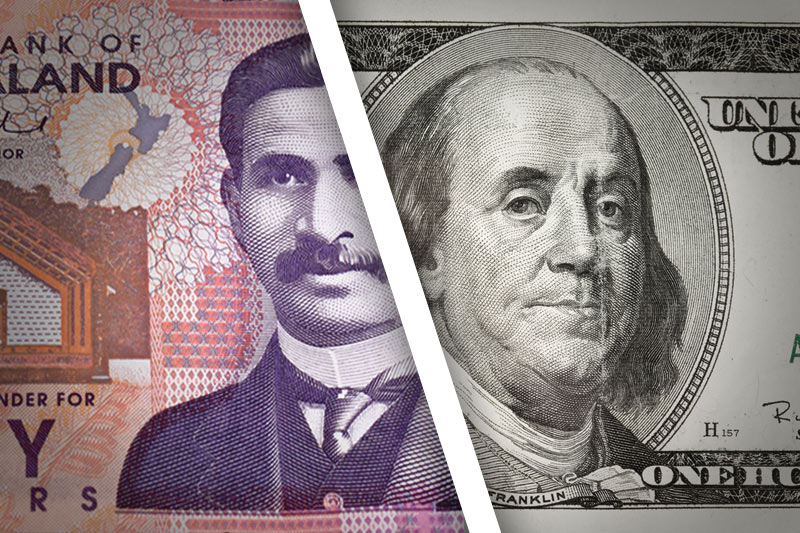Investing.com - The New Zealand dollar traded slightly lower against the U.S. dollar during Thursday’s Asian session despite news that the U.S. has reached a budget agreement that will reopen the government there..
In Asian trading Thursday, NZD/USD inched down 0.04% to 0.8423. The pair was likely to find support at 0.8308, the low of October 14 and near-term resistance at 0.8436, the high of September 19.
The kiwi’s move lower Thursday perhaps caught some traders off-guard. Expectations were in place that riskier currencies like the kiwi would rally after U.S. policymakers finally reached an agreement to reopen the government and avert a debt ceiling crisis.
Weakness in the kiwi could be a case of profit-taking as the currency had recently touched a five-month high against the greenback.
On Wednesday, Fletcher Building, one of New Zealand’s largest companies, warned of the ill effects of the strong kiwi. Although it is widely known that the strong dollar is hampering New Zealand industrial firms and exporters, the Reserve Bank of New Zealand has shown no overt willingness to weaken the currency.
Also on Wednesday, official data showed that consumer price inflation in New Zealand rose 0.9% in the third quarter, exceeding expectations for a 0.8% increase, after a 0.2% uptick in the three months to June.
Senate Majority Leader Harry Reid, a Democrat, and the Senate's top Republican, Mitch McConnell, agreed on a plan to end the U.S. fiscal impasse and reopen the government as well as extend Washington's borrowing authority to avoid defaults.
That bill will fund the federal government through Jan. 15 and extend the government’s borrowing power, known as the debt ceiling, through Feb. 7, NBC News reported.
Elsewhere, NZD/JPY lost 0.12% to 83.10 while AUD/NZD fell 0.15% to 1.1324.
In Asian trading Thursday, NZD/USD inched down 0.04% to 0.8423. The pair was likely to find support at 0.8308, the low of October 14 and near-term resistance at 0.8436, the high of September 19.
The kiwi’s move lower Thursday perhaps caught some traders off-guard. Expectations were in place that riskier currencies like the kiwi would rally after U.S. policymakers finally reached an agreement to reopen the government and avert a debt ceiling crisis.
Weakness in the kiwi could be a case of profit-taking as the currency had recently touched a five-month high against the greenback.
On Wednesday, Fletcher Building, one of New Zealand’s largest companies, warned of the ill effects of the strong kiwi. Although it is widely known that the strong dollar is hampering New Zealand industrial firms and exporters, the Reserve Bank of New Zealand has shown no overt willingness to weaken the currency.
Also on Wednesday, official data showed that consumer price inflation in New Zealand rose 0.9% in the third quarter, exceeding expectations for a 0.8% increase, after a 0.2% uptick in the three months to June.
Senate Majority Leader Harry Reid, a Democrat, and the Senate's top Republican, Mitch McConnell, agreed on a plan to end the U.S. fiscal impasse and reopen the government as well as extend Washington's borrowing authority to avoid defaults.
That bill will fund the federal government through Jan. 15 and extend the government’s borrowing power, known as the debt ceiling, through Feb. 7, NBC News reported.
Elsewhere, NZD/JPY lost 0.12% to 83.10 while AUD/NZD fell 0.15% to 1.1324.
